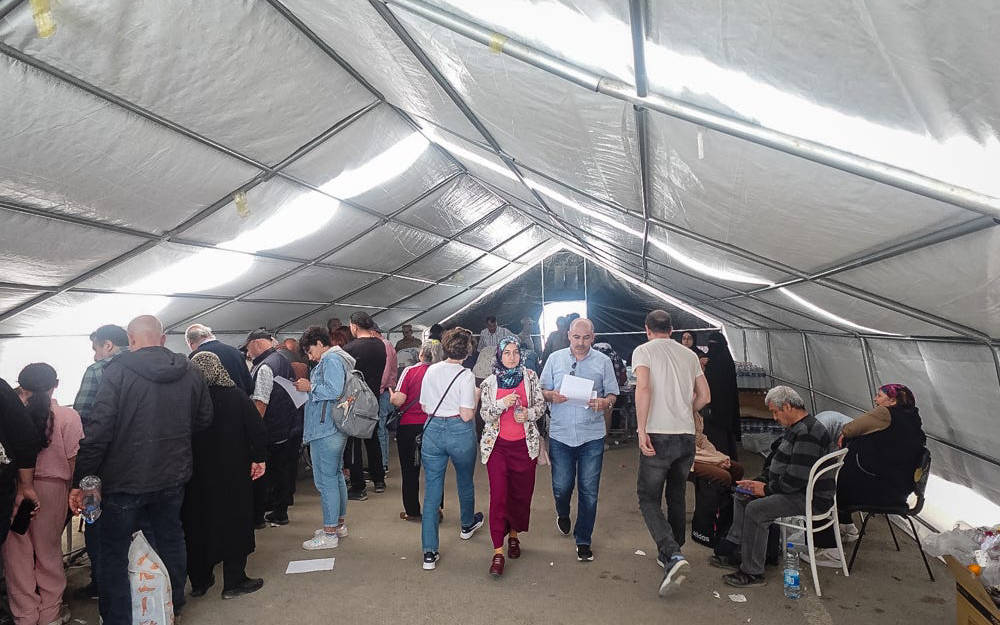Photo: hikewithblonde.com
Click to read the article in Turkish
The minister of treasury and finance, who tried to make us believe that he knows everything by smiling wisely in every speech, has his work cut out for him.
Even when using a weird expression like "We have abandoned orthodoxy and become heterodox," it is clear that he doesn't know what heterodox economic policies mean.
He doesn't know implementing an interest rate policy that no one understands and seems unlikely to understand is not enough for being considered heterodox, either.
Production adapted to foreign demand
However, aside from the interest rate nonsense, the policies implemented by Turkey's current government are extremely ordinary, widespread and in line with the recommendations made by international organizations to all underdeveloped countries for years.
Policies symbolized by the International Monetary Fund (IMF) in Turkey are based on increasing export opportunities to foreign markets by suppressing wages and keeping the value of the national currency low. As the economy turns to foreign markets, production will be shaped according to foreign demand, and the decrease in wages and the deterioration of income distribution will not have an impact enough to cause a recession.
Indeed, some Far Eastern countries have implemented such policies and achieved growth in this way. Of course, these policies have consequences such as the political administration becoming increasingly authoritarian and repressive and an increased poverty in the country. When choosing policies, these matters are also taken into account.
But consistency is important in any kind of policy choice. No matter what kind of model you choose, if there is no consistency between the policies you implement, each step you take hinders another and you can't stick with the path you aimed for. With a government that wants to go its own way and is uncomfortable with the concept of planning, it is impossible to achieve consistency.
Ever-decreasing labor costs
The most important pillar of these policies is wages. The government regularly reduces wages in accordance with the policies it prefers. According to the newly announced Eurostat data, the hourly labor cost in Turkey has been reduced from 6.6 Euro to 3.7 Euro in the four-year period between 2016 and 2020. These figures show that the labor cost has decreased by 44 percent in four years.
In 2020, the average hourly labor cost in the European Union was 28.6 Euro. This is nearly eight times that of Turkey. In the same year, the hourly labor cost was 6.2 Euro in Serbia and 6.5 Euro in Bulgaria, the lowest in Europe. In Greece, which main people in Turkey think is dwindling in an economic crisis, it is 16.9 Euro.
In 2021, these figures rose to 29.1 Euro in the European Union average, 6.9 in Serbia, 7 in Bulgaria, and 17.2 in Greece. Turkey's 2021 data hasn't been compiled yet, but it is not difficult to guess in which direction it has changed.
These are enough to show that Turkey is following a model of growth based on cheap labor. Over time, several countries have adopted this method. However, since some of these countries viewed the cheap labor policy as a temporary application of the initial stages of development, they took the steps of transitioning to advanced technology, qualified labor force, and scientific studies in the same period. This has been a model adopted by most of the far eastern countries, with Japan, South Korea, and China being the first ones.
Policies compatible with cheap labor
It is understood that those who rule Turkey are determined to take the cheap labor policy, which they think is useful, suitable and worthy for us, as far as it can go. Unionism has already been finished off. Workers are docile. Industrialists, traders and shopkeepers are pleased with the situation. They view the situation as "The more we reduce wages, the more we cut prices; the more we cut prices, the more we can replace China."
Looking at other areas of the economy other than wages, it is possible to see that Turkey does not intend to change its cheap labor policy. No program for the transition to advanced technology is on the agenda.
Exports are still mainly carried out on goods based on backward technology. There is no incentive system that obliges advanced technology; the prevailing mentality is that there should be investments no matter how they are made.
The most important matter to change the labor policy and use advanced technology is to increase the quality of education. However, education budgets, which are getting more and more inadequate with each passing day, reduce the quality of students at all levels of education.
Quite doubtful that it knows what university means, the government believes universities can be established with campuses and buildings. How much the level of academic staff has fallen is sometimes understood at first glance and sometimes in the first sentence.
For a country that has not abandoned the concept of development, the share of research and development and industrial investments based on advanced technology is important. A government that does not consider giving up its cheap labor policy would not mind giving weight to housing and infrastructure investments, because it does not have a target of transformation.
Inflation disrupts harmony
These are consistent policies for those who are content with the cheap labor policy. Therefore, it does not pose a problem in terms of their own goals. However, in countries that implement a cheap labor policy, it should be possible for the workforce to have access to basic consumer goods in order to continue their existence — the reproduction of the labor force. All the mentioned Far East countries have paid attention to this.
The share of food in the total consumption of households in Turkey is around 25 percent. This share increases as the income level decreases. The share of transportation is 17 percent, and the share of housing expenditures is 14 percent. In other words, the share of these three groups is more than half of the total consumption. In lower income groups, these expenditures are near the total expenditures.
According to the TurkStat data, the inflation rate was 61 percent in the past year. The food inflation is 70 percent. Transportation prices have increased by 99 percent and housing-related prices have increased by 51 percent. These figures show the increase in the prices in the basic expenditure items of wage earners.
Running an economy based on cheap labor and the failure to restrain the increases in the prices of basic goods, especially food, at the same time, is the expression of an unsustainable situation. Even a government that does not take into account the needs of the people and wants growth based on poverty should be consistent.
Cheap labor and food inflation are situations that cannot be continued together. If both of the two are present in the same period, it means non-economic solutions will come into play.
For now, flippant suggestions like fixing the prices of 20 basic goods are talked about. Apparently, there is a state of fuss caused by the failure to find a solution. Governments that view cheap labor as an instrument of growth already tend to implement anti-democratic practices; we should take into account that repression may increase even more in periods like this. (BD/APK/VK)





.jpg)




.jpg)
.jpg)
.jpg)